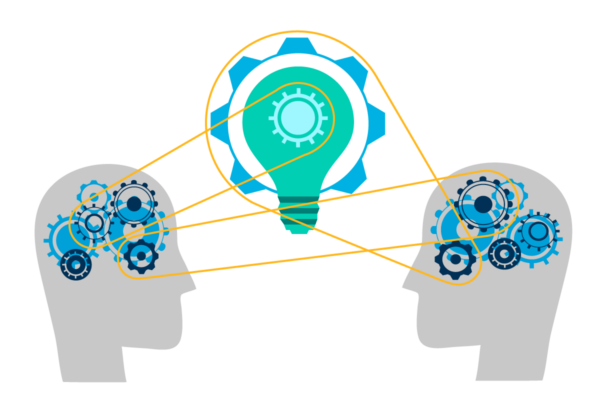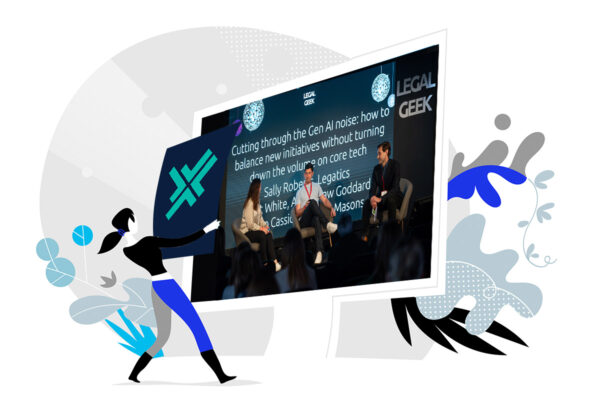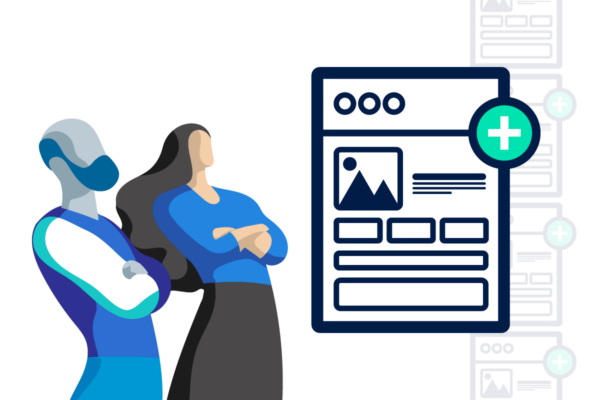Law firms have long been known for a culture of hard work – which has crossed the line into work environments that are dangerous for employees’ mental and physical health. But things have been changing for the better, according to Lucy Shurwood, who is a partner at Pinsent Masons.
‘I have seen people carried out of meetings because they passed out having not had any sleep for three days,’ said Lucy. ‘That certainly wouldn’t happen in my firm now, and I suspect it doesn’t happen in very many anymore. So we have made improvements. But there is obviously still a way to go.’
Lucy joined our CEO Anthony Seale, Head of Product Ryan Turner, and Founder of Law and Broader Chrissie Wolfe in our recent webinar to discuss our survey on mental health challenges in the law profession, carried out by YouGov. Here are some of their tips for how everyone can work together to reduce and manage burnout.

1. Be aware of what causes you to feel burnt out
According to Chrissie, it’s important to pause and pay attention to what exactly is causing you to feel burnt out.
For example, she said, she was doing a lot of extra admin that wasn’t necessary. ‘Once I’d identified those triggers, I went to my employer and said, “Look, I am feeling burnt out, this is why – I figured out these triggers. And actually, it would help me if we could kind of facilitate this happening.”’
Unfortunately in Chrissie’s case, it wasn’t always possible to access the solutions she needed – contributing to her leaving the profession. But she believes that lawyers can still have some agency over their work and levels of stress if they take the time to identify the cause.
‘When you go through that process, there are actually some ways that you can resolve your own burnout without actually needing to go to your employer,’ Chrissie said. ‘For example, you can structure your days or weeks differently, if you know what your triggers are, sometimes you’ve got that capacity to manage your own day to kind of, rather than having four days in the office, or one day out, you know, or four days behind your desk, you can spread your day out.
Generally speaking, I think if you can try and identify the solutions before you go to your employer, that is a big help, because it’s much easier than just going, I feel burnt out, I don’t know what to do, because your employer doesn’t know what to do either. It’s completely subjective. So you might be given a day off, for example, if you feel burnt out or a week off. But actually, if you haven’t identified the triggers, all that happens is when you come back, the triggers are still there, and you get into the same process. So sometimes I think it’s helpful in this process to really identify what your own triggers are. And then you can seek long term sustainable solutions to that.’
2. Ensure that lawyers’ work is varied and meaningful
There’s always going to be mundane work that needs to be done in a law firm, according to Lucy. But that doesn’t mean that partners shouldn’t strive to make sure there’s a balance between necessary admin work and interesting, meaningful projects.
‘One of the things that I try and do is make sure everyone gets a balance of different experiences, I think we all have to acknowledge that there is boring, repetitive stuff, and it still needs to get done,’ said Lucy. ‘And I’m a partner, and I still have to do my fair share of it. But that’s something we should all be really focused on, you know, let’s not just keep accepting that somebody somewhere is going to have to spend hours just sitting there paginating, let’s find a way of making paginating a job that nobody has to do. And I think that is definitely the way that we should be going.’
By the same token, junior lawyers are junior – and giving them work that feels too complex can contribute to stress and burnout, too. ‘Looking at how we can support and technology plays a really big part in that. just by giving people access to the resources to support them in what they’re doing. I do think we’re making good progress.’
3. Reduce unnecessary tight deadlines
Finally, a widely-recognised source of the pressure facing lawyers is demand from clients to meet tight deadlines. Often, most acknowledge, there are good reasons why work may need to be completed by a certain time, and quite quickly. However, according to Anthony, law firms can make more of an effort to distinguish between legitimate demands and unreasonable ones.
‘I think sometimes lawyers are a little bit too scared to ask the question of a client, you know, how urgent is this? Or if we get this to you by this date, would that be okay? And they jumped towards thinking this needs to be done straight away. And we need to impress the client with this. And are they really going to go to another firm if we don’t deliver it by Tuesday?’ said Anthony.
‘But I think a lot of clients have been lawyers, they’re managing things themselves and I think they also understand the things that also impress and retain clients aren’t just doing the work really, really quickly. I think the relationship, the conversations you’re having with the clients, the fact that they get to know you a little bit better, and how you’re balancing your work, and that you consider them really important and providing a great service because you’ve taken the appropriate amount of time to do these things and balance them well – I think there are other ways of impressing the clients, and we shouldn’t be too scared to ask that question.’
According to Lucy, the Mindful Business Charter has been helpful in having these conversations. ‘It just enabled us to have a conversation with the client that said, Look, if we are going to deliver this to your timescale, we are all going to have to work all weekend. Do you really need it? Because if you really need it, absolutely, we will do it. But actually, if this has been prepared for a meeting that is very likely not to happen, then we can deliver it later in the week.
‘And I think it’s really important to have those conversations with clients. Because as Anthony says, it isn’t just about speed. It does show value in the relationship. And I think it shows that we’re human, you know, nobody wants to force people to cancel their weekends, if it isn’t necessary. And also, if you’re one of the people who’s had their weekend cancelled to deliver something that then goes in the bin or isn’t looked at for two weeks, it’s really depressing. And that then contributes to your feeling of massive dissatisfaction.’
4. Automate mundane tasks where possible
To facilitate the goal of giving lawyers meaningful work, it’s necessary to find other sources of support. Those ideas can come from junior lawyers themselves, said Lucy.
‘As a partner, if somebody comes to me and says, “Look, I don’t think we need to do it this way, or I don’t think we need to do it at all, and here’s how I think we can make this better,” I’m delighted because it’s the best outcome for everybody. So I would really encourage people, and especially if you’re in a firm that has innovation activity, participate in that and do what you can to try and improve the situation. I do think people are generally pretty receptive to that sort of suggestion’.
According to Chrissie, this is also where identifying the cause of burnout comes in. For her, burnout doesn’t have a single, universal cause.
‘I noticed that when I was out of the office at trial, working 14, 15 hours a day, although I was tired, I actually wasn’t burnt out. However, if I spent eight or nine hours in the office, much less time, I felt more burnt out. So I realised quite quickly, it wasn’t necessarily the volume of hours. It was the nature of the work that I was doing,’ said Chrissie. ‘And on days where I’d been doing a lot of admin repetitive sort of template process driven work, I felt a lot more burnt out than days where I was doing what I deemed to be the kind of really interesting work that drove me.’
It’s also important in Lucy’s view that if there is a technological solution offered, it’s easy and intuitive to use. ‘The most important thing is to make it as easy and as intuitive as possible. I would rather something has 50% less functionality, but a lawyer can pick it up in 5-10 minutes, than it has all the bells and whistles in the world on it. But I’m going to need to give them an hour’s training session, and then repeat that every week until they’re used to it. And I just think it’s so important to focus on the really simple, straightforward stuff.’
Anthony has personally seen the impact of simple-to-use legal technology on trainee lawyers. ‘I remember, I feel kind of bad about it, because my favourite demo of the software they gave was to a trainee who cried, he said. ‘She just spent that weekend making a Bible at the end of the transaction. And [Legatics] did it with a single click. It was quite an emotional reaction. So I was pleased that we solved the problem, but also quite sad that I’d make them upset.’
The results of the YouGov survey showed that automating admin work is considered by lawyers to be the most impactful way that technology could help.
Ryan summarised how Legatics fills this purpose: ‘We make it easier for lawyers to manage transactions, lots of documents, lots of things moving. We put that online, make it much more simple to close and manage your deal. I think what it gave me more than anything else was a central source of truth where I could go to find all my information. Whereas previously, I never had that,’ he said.
‘And that freed me up more to focus on those problems that I didn’t have as much time to focus on. So it’s not so much necessarily always given me time back, but it gave me valuable time back. And I think that was what I found the most useful thing from using Legatics, and even other software that I used.’
Download the full report to read the rest of the findings.


 Remy Masiel , Senior Content Manager
Remy Masiel , Senior Content Manager 







